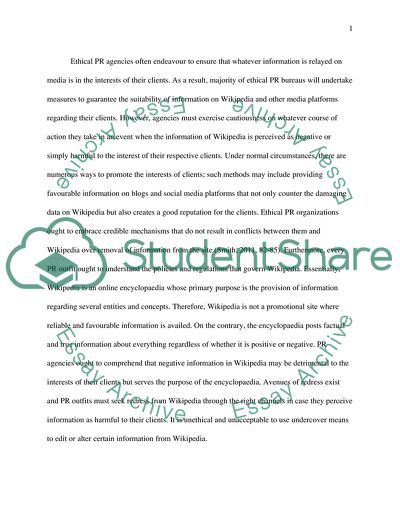Cite this document
(What Should an Ethical PR Agency do if the Information on Wikipedia is Research Paper, n.d.)
What Should an Ethical PR Agency do if the Information on Wikipedia is Research Paper. Retrieved from https://studentshare.org/media/1773601-what-should-an-ethical-pr-agency-do-if-the-information-on-wikipedia-is-perceived-to-be-harmful-to-the-reputation-of-a-client
What Should an Ethical PR Agency do if the Information on Wikipedia is Research Paper. Retrieved from https://studentshare.org/media/1773601-what-should-an-ethical-pr-agency-do-if-the-information-on-wikipedia-is-perceived-to-be-harmful-to-the-reputation-of-a-client
(What Should an Ethical PR Agency Do If the Information on Wikipedia Is Research Paper)
What Should an Ethical PR Agency Do If the Information on Wikipedia Is Research Paper. https://studentshare.org/media/1773601-what-should-an-ethical-pr-agency-do-if-the-information-on-wikipedia-is-perceived-to-be-harmful-to-the-reputation-of-a-client.
What Should an Ethical PR Agency Do If the Information on Wikipedia Is Research Paper. https://studentshare.org/media/1773601-what-should-an-ethical-pr-agency-do-if-the-information-on-wikipedia-is-perceived-to-be-harmful-to-the-reputation-of-a-client.
“What Should an Ethical PR Agency Do If the Information on Wikipedia Is Research Paper”, n.d. https://studentshare.org/media/1773601-what-should-an-ethical-pr-agency-do-if-the-information-on-wikipedia-is-perceived-to-be-harmful-to-the-reputation-of-a-client.


